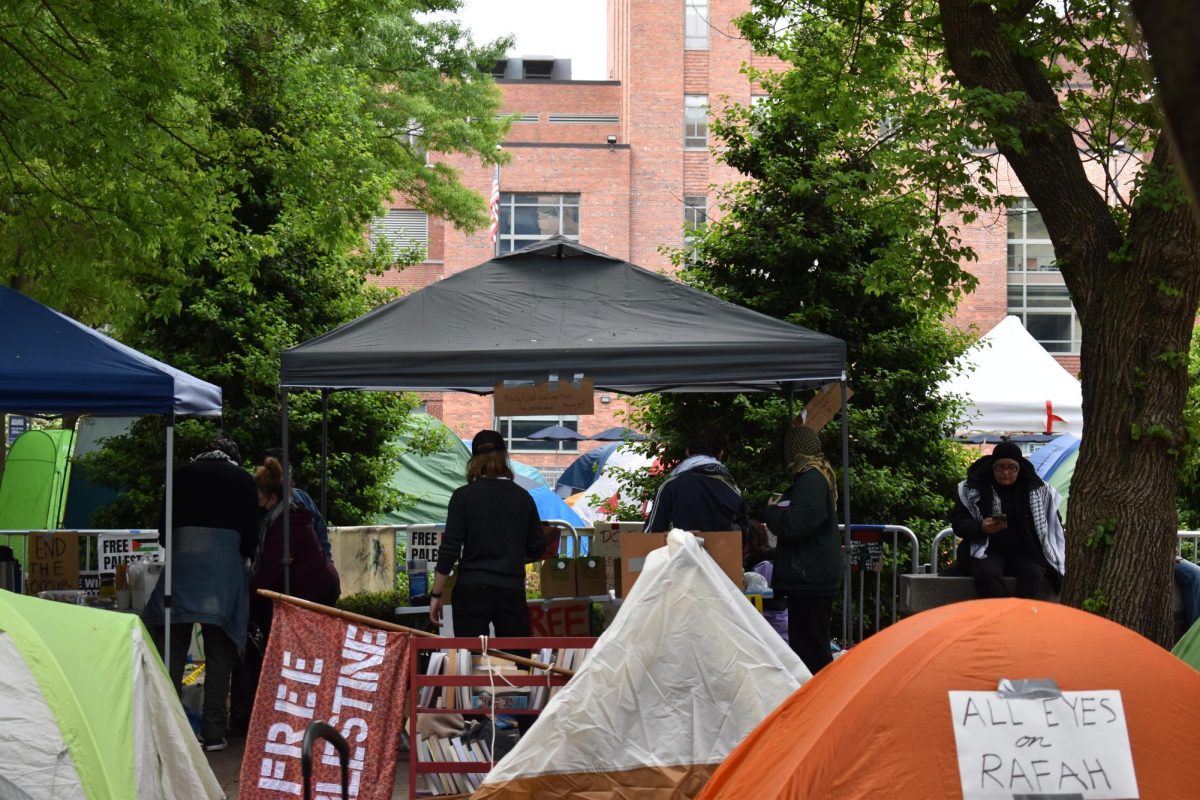Trust.
That is what the Center for Alcohol and other Drug Education wants from students. To rid the office of its reputation as the alcohol police, its leadership is asking students what they really think.
The listening tour, which will begin Tuesday, will include talks with specific student populations – a new approach to town hall-style meetings that administrators hope will allow students to voice their concerns with the center’s operations and offer suggestions for its future.
Assistant Dean of Students Tara Pereira expects face-to-face interaction with students will help make the office more functional and approachable.
“I also want to make sure we have time in the listening tour for things that are not policy related, but are more programmatically related, or health and safety campaign-related,” Pereira said.
Alexis Janda became the center’s new associate director in January, after the office lacked senior leadership for nearly a semester. Janda wants to hear students talk about how visiting CADE can become a more inviting experience, rather than an obligation resulting from disciplinary action.
“I would like to have the impact of making CADE a true resource center where students feel comfortable coming in and asking those questions,” Janda said.
The tour mirrors Pereira’s efforts last year to aggregate feedback when Student Judicial Services was restructured into two bodies: the Office of Student Rights and Responsibilities and the Office of Civility and Community Standards.
CADE, a preventative body responsible for publicizing the risks of alcohol and drug abuse, also serves several administrative functions, including on-campus event registration and Responsible Alcohol Management training for students.
“I don’t think that listening tour was hugely successful in that we didn’t have a lot of people attend the sessions,” Pereira said, adding that around 30 students attended the half-dozen more generalized sessions last year. She hopes the more targeted outreach will draw more participation.
Pereira is applying a concentrated approach to the CADE tour by targeting specific student groups and organizations at each town hall – including undergraduates, graduates, Greeks and student leaders – as well as soliciting private comments via e-mail through her “TellTara” address.
CADE staff also plans to meet individually with international students and veterans, house staff, and faculty and staff – to learn students’ current perceptions of the office and what they believe it can do better in the future.
Pereira said the reassessment will likely result in renaming the office to account for its growing responsibilities, such as more violence prevention education and efforts to support students recovering from substance addictions.
“Because CADE’s services are expanding, its name needs to reflect those services better,” Pereira said.
Pereira said the listening tour would also serve to educate students about specific regulations – such as ambiguity regarding the Good Samaritan policy, which grants amnesty to students who report a peer’s alcohol overdose – and CADE’s efforts to promote bystander intervention, through campaigns such as Be Wiser and Living in the Green.
Originally slated for February, the tour was rescheduled to allow Janda to settle into her new role with CADE. But Pereira said students have already voiced several concerns with the center’s current policies, citing recurring issues like mandatory event registration and Responsible Alcohol Management training.
“We have been listening, we have been listening for all of these years,” Pereira said. “We have written down what it is that students have problems with.”







